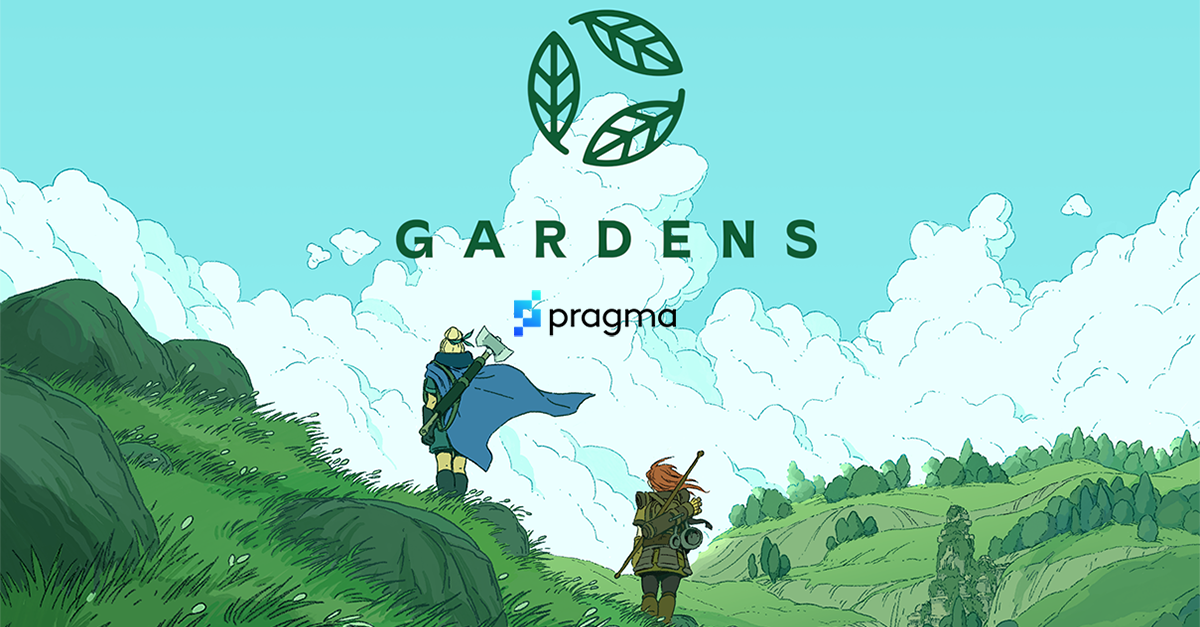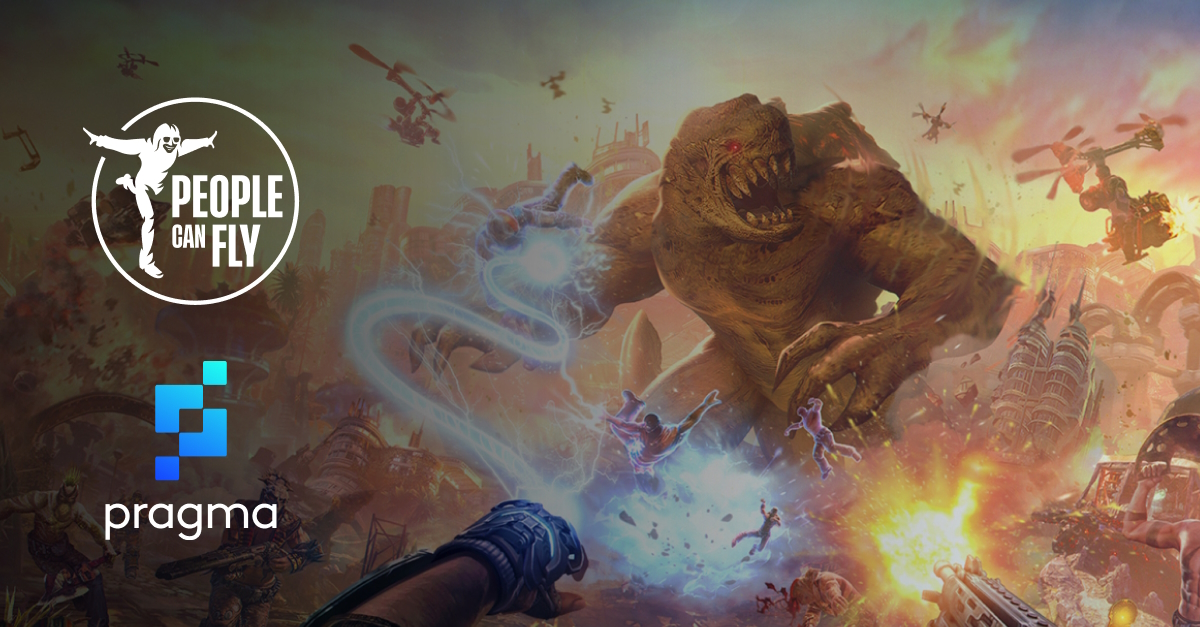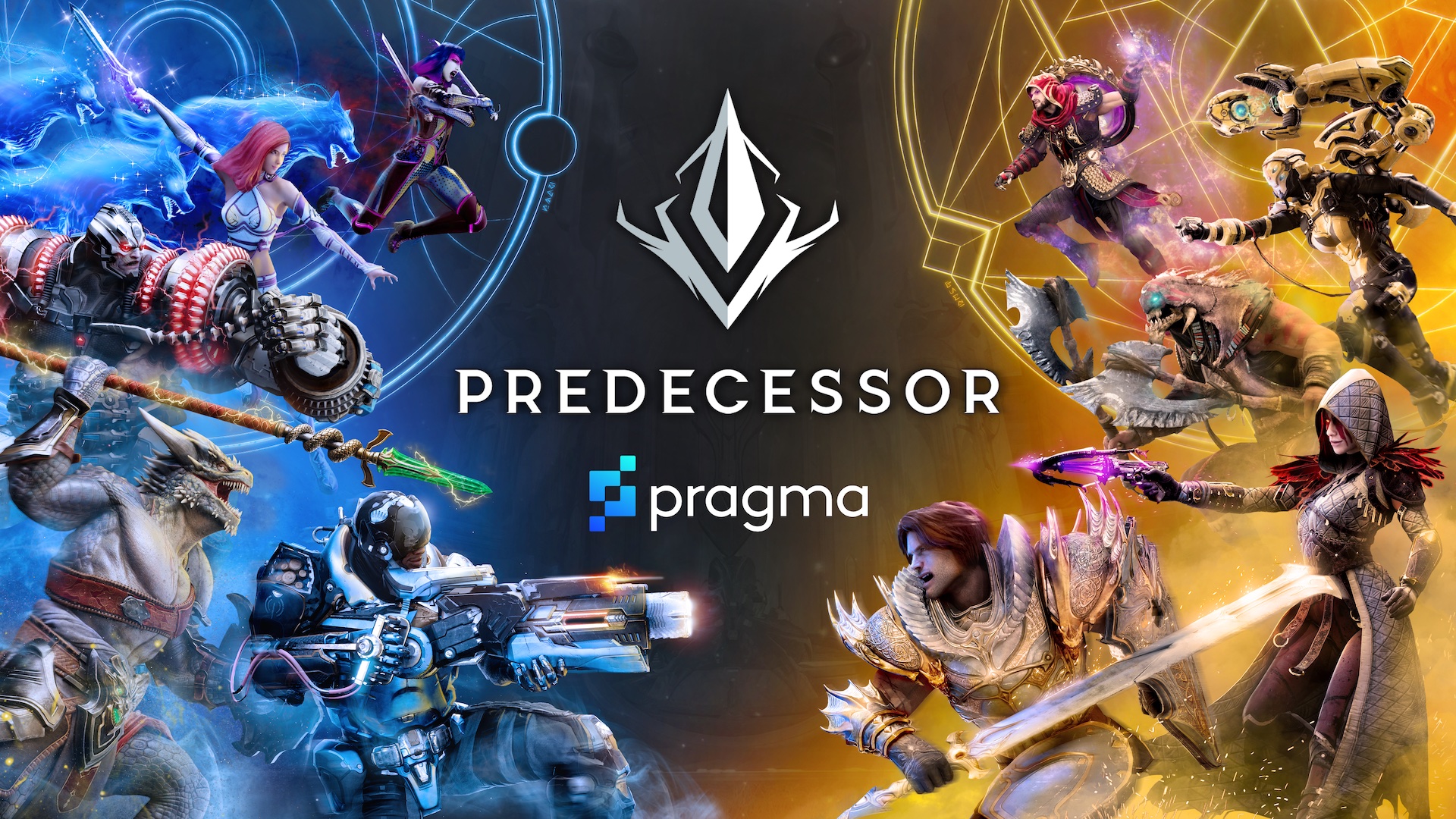Gardens Interactive burst on the gaming scene as the formation of a trio of talented video game creators backed by a constellation of prestigious investors and advisors. It enticed the world with glimpses of a mysterious fantasy adventure game featuring an art style that is part Ghibli-esque, part French illustration.
Today, the studio is announcing that it's partnering with backend game engine Pragma in an approach to game development that blends technology and art to create a uniquely social possibility space.
Growing Gardens
Gardens Interactive was formed in the spring of 2021 by Chris Bell, brother Stephen Bell, and friend Lexie Dostal. The three have a long, interesting path in game development, having worked on a number of singular, compelling titles like Journey, Dustforce, What Remains of Edith Finch, Blaseball, Sky: Children of the Light, and Way.
After launching Sky, the brothers and Dostal took some time off to consider their next steps.
"We spent a couple of years prototyping and kicking around ideas," Stephen Bell said. "We focused on really deeply social online multiplayer and decided to start Gardens."
Looking back at the previous titles the trio has worked on, you can see a lot of discussion and thought put into things like connecting the world through play, and that's what the team wanted to do with this new studio.
"We wanted to build our dream studio, the place we wanted to work every day. We're just trying to take best practices and lessons from our previous projects and workplaces and the games that inspire us and focus on bringing what we feel is some needed innovation to genres we love and deeply social experiences to players."
The studio name—Gardens—came from the sorts of virtual worlds the growing team aspires to create.
"Really lush living online worlds that can bring players together to form lasting relationships, vibrant player communities," Bell said. "Games that can kind of live on and continue to transform and evolve with their communities over time."
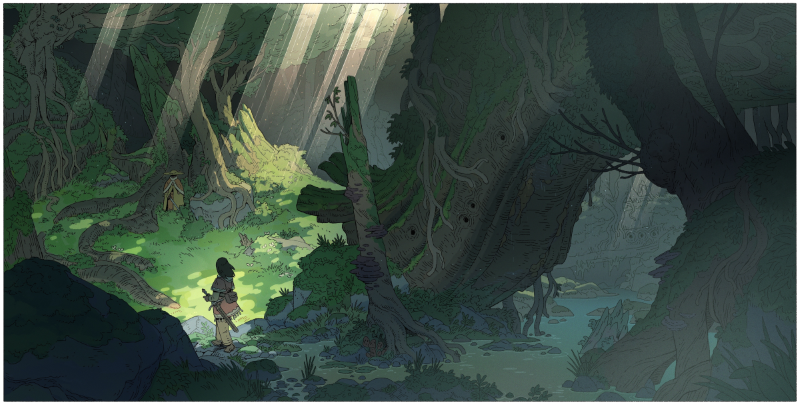
Pragma
Gardens grows alongside its yet-to-be-named, or really even detailed, flagship title.
"Our flagship title builds upon a lot of the multiplayer ideas that run through our previous titles—games like Sky and Journey, and even my brother Chris's student game Way —but really trying to bring some of those ideas into a bit of a higher stakes arena," Bell said "We're making a shared survival fantasy adventure. We're building upon a foundation of really tactile, physically embodied multiplayer interactions that can form relationships between players and get them to build bonds. But where betrayal is still possible."
The team knows that the title must be powered by a deep mix of artistic design and technological innovation.
Because the studio was built around the concept of a medium-sized team punching above its weight class, it was important to find the right technological partners. For the engine, that's Unreal Engine 5. For the backend, it's Pragma.
And that decision was driven by a mix of artistic wants and engineering needs.
Serge Knystautas, who was head of engineering at Singularity 6 and director of software engineering at Riot Games, said he came to Gardens in part because the founders viewed design and engineering as more of a partnership.
"It's design-led, but tech constraints are not a bother; they are part of what we have to solve and what makes things interesting," he said. "This was an opportunity to build some new types of social mechanics. It was very clear these weren't just whiteboard design ideas of everything they might be able to do. It was really grounded in a lot of technical constraints and thoughts about how we would approach it."
The key to doing that was lining up the right technology to support the team's work.
Knystautas said Pragma was always their first choice, but before committing, they took a step back and looked at what else was available.
"The biggest question multiplayer games have to worry about is 'Do I have to build my own backend?'
The answer to that question often falls into one of two categories. A studio can typically use an out-of-the-box backend solution if it's a straightforward single-player game. The studio might build its own platform if the game is more sophisticated, like Guild Wars or League of Legends.
"Pragma gave us the option of getting the best of both worlds," Knystautas said. "They gave us the ability to log in with Steam, have payment methods, a player portal, a login queue, and all of these features that games need for a launch. But then, when you come to all the social features that I have to build with the designers, such as, 'How does our ally system work?' or other new multiplayer mechanics, we know we’re going to build that system specific for our game. And Pragma gave us the option to get the best of both.
"I can have a single backend solution that has both standard, plug-and-play systems and our own custom systems. The tech term is extensibility. We really wanted a platform that would be something we could extend and just make better and better without having to build everything from scratch."
He added that going with Pragma allowed the studio to focus on what would help make its game stand out.
"With all of our choices, we're very careful and make sure we do our due diligence and deep dive into things. Ultimately, Pragma was the choice," Bell said.
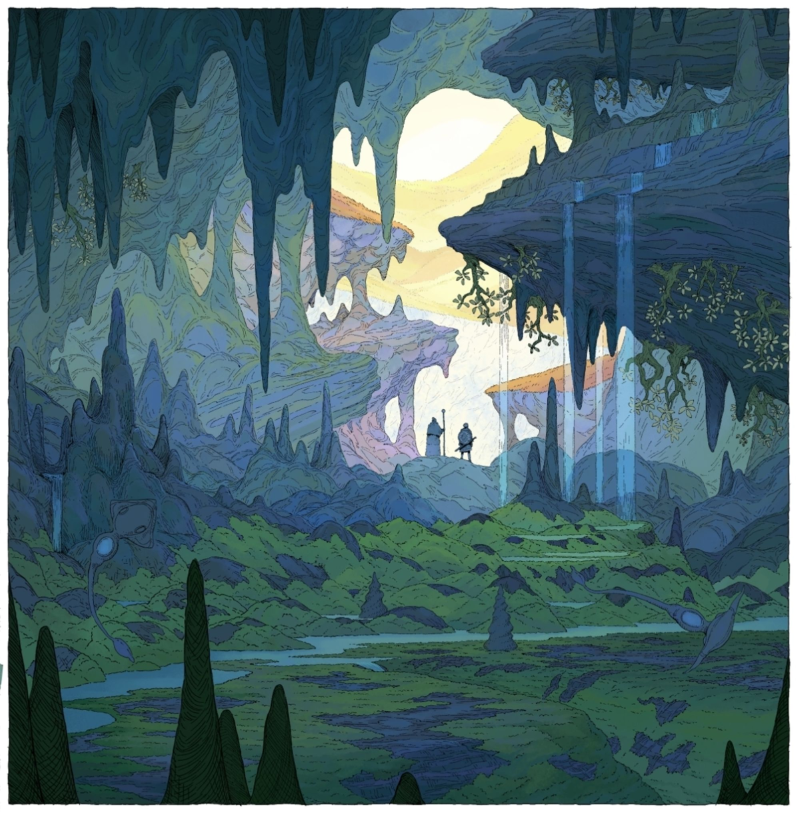
The flagship title
Looking at the most current online video games, Stephen Bell says that many of them feel like single-player experiences surrounded by other single-player experiences. They're not the sort of truly social experience he and the studio want to craft.
Still early in development, Gardens' game can best be described as an online, ongoing shared survival adventure that takes place in the shape-shifting, untamed fantasy wilds.
"It's a game about crossing paths with other players, navigating interesting dynamics between allies and strangers, deeply social interactions, and going on adventures together," Bell said. "Really building out a kind of foundation for continuous role-play so that players can write their own legends, define the type of player they want to be, and continue to evolve that over time."
To make this happen, the studio is focusing on building up the sorts of interactions that can help build bonds between players, whether that's hoisting a friend up on your shoulders to grab fruit from a tree, helping to take down a monster, or awakening dormant magic.
The studio calls it an emergent narrative ecology. Blending elements of a sandbox game with designer Hideo Kojima's notion of strand elements, Bell calls what they're creating a Strandbox game.
The team is relying on Pragma to make this all work and to help ensure that player action has consequences and that players themselves have presence and proximity.
"What I worry about solving in these types of environments are persistent player data, matchmaking people, and then tracking all of the social interactions," Knystautas said.
The fact that Pragma is extensible only makes things easier for everyone, especially as the title evolves.
"I cannot predict everything that is going to be coming out of Chris and Lexie's brain or what the players are going to do as they interact with the environment," Knystautas said. "So I need something that offers us an opportunity to keep improving and extending and capturing those things."
Knystautas said he's been delighted working with the Pragma team.
"They are a partner rather than a vendor. I want to say they feel highly vested in our success," he said. "It has been really great working with our team of game designers to get all of their ideas and come back with implementations. And I am much more flexible and can accommodate their unique requests with Pragma because they give me an extensible system that lets me not give just a one-size-fits-all-all answer."
Learn more about Gardens Interactive on its website.
About the Author: Brian Crecente runs consulting agency Pad & Pixel, LLC. He founded Kotaku, co-founded Polygon, and was the video game editor for Rolling Stone and Variety. Before his time in video game journalism, Crecente was an award-winning newspaper reporter who covered crime and public safety for more than 15 years.
